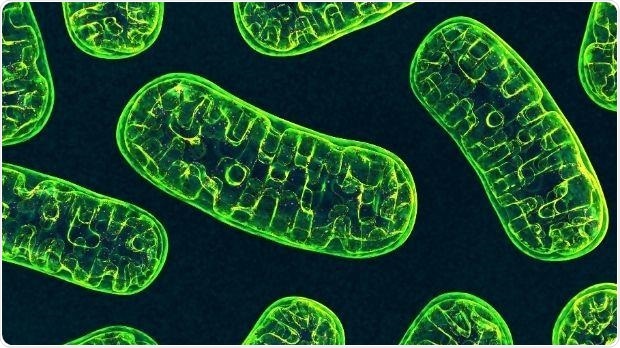Mutations in the DNA of the cell's energy 'factories' increases the chances of survival for people with bowel cancer, according to a study published today (Thursday) in Nature Metabolism.

Image Credit: Cancer Research UK
Scientists funded by Cancer Research UK have found that patients with colorectal cancer, a common form of bowel cancer, had a 57 to 93% decreased risk of death from their cancer, depending on the presence and type of mitochondrial DNA mutations in their tumors.
The researchers hope that in the future, doctors could use this information to identify patients with more aggressive forms of bowel cancer so they can receive the most effective treatments.
Whilst most of our DNA is wrapped up at the center of our cells in the nucleus, we also have some in our mitochondria, which are small structures found in our cells that help us turn carbon fuels, such as sugar, into energy. Just as our main nuclear DNA can randomly get errors in it, or 'mutations', the same can happen to the DNA in our mitochondria.
It's known that mitochondrial mutations can be found in cancer cells, but there has been little research into what they do or whether they have any effect on treatment response or how the cancer will progress.
To answer these questions, researchers at the Cancer Research UK Beatson Institute in Glasgow collaborated with the Memorial Sloan Kettering Cancer Center in New York to collate and analyze data from the largest published dataset of tumor samples that include mitochondrial genome data and the corresponding clinical outcomes of the patients.
By analyzing this data from 344 patients with a common form of bowel cancer known as colorectal cancer, the researchers could match groups of mutations to the likelihood of survival.
They found that, after controlling for other variables which affect cancer risk like age, the presence of mitochondrial mutations was associated with 57 to 93% decreased risk of death from colorectal cancer, depending on the type of mitochondrial DNA mutation.
The team also wanted to know how common mitochondrial mutations were in cancer more broadly. They used cutting-edge genetic techniques to look at existing data from over 10,000 tumor samples across 23 cancer types to search for mitochondrial mutations that were frequently repeated.
They found that mitochondrial mutations were present in almost 6 in 10 of the tumor samples, with 25 out of the 30 most commonly mutated genes across cancers being present in the mitochondrial genome.
These results indicate that mitochondrial mutations could play a role in survival beyond bowel cancer. Further research is needed to understand the wider implications of mitochondrial mutations in different cancers, and to delve into the biological underpinnings behind it.
This new study shines a light on the impact of mitochondrial DNA mutations in cancer, which have been overlooked for decades. This discovery could have a huge impact on patient care, with potential for changes to suggested treatments and a patient's outlook based upon the mitochondrial DNA status of their cancer. However, further research will be necessary to move these discoveries from the lab to the clinic."
Dr Payam Gammage, Study Co-Lead Author and Group Leader, Cancer Research UK Beatson Institute
Dr Ed Reznik, co-lead author based at Memorial Sloan Kettering Cancer Center, said: "Using data hiding in plain sight, we have shown that a critical piece of the cell's machinery to make energy is quite often broken in cancers. It now begs the question of how these mutations within mitochondrial DNA might be exploited as drug targets."
This work highlights just how much more there is to discover about the inner workings of cancer, and all those breakthroughs for people with cancer we have yet to unlock. Incredible things can be achieved through research, and the gains are even greater when we collaborate with world-class global institutes like Memorial Sloan Kettering Cancer Center. We look forward to seeing where this relatively unexplored area of research takes us, which could have some fantastic potential for people with cancer."
Michelle Mitchell, Chief Executive, Cancer Research UK
Source:
Journal reference:
Gorelick, A. N., et al. (2021) Respiratory complex and tissue lineage drive recurrent mutations in tumour mtDNA. Nature Metabolism. doi.org/10.1038/s42255-021-00378-8.